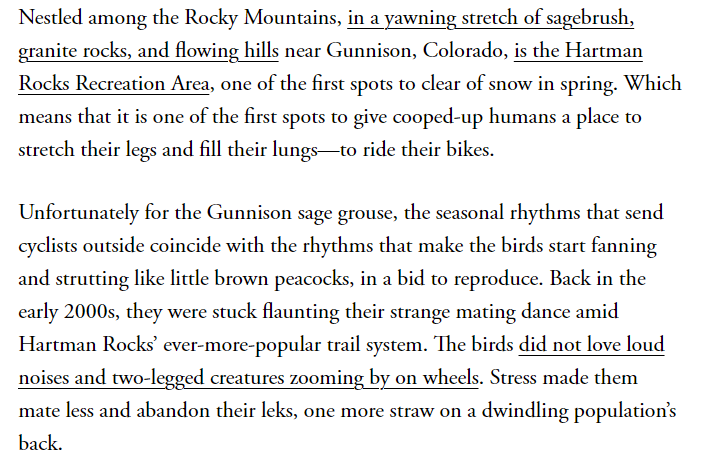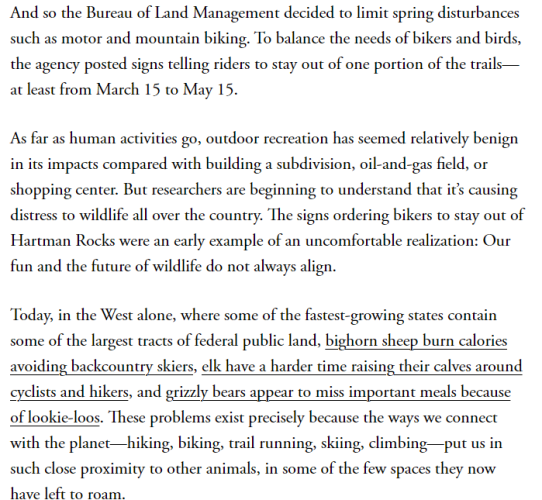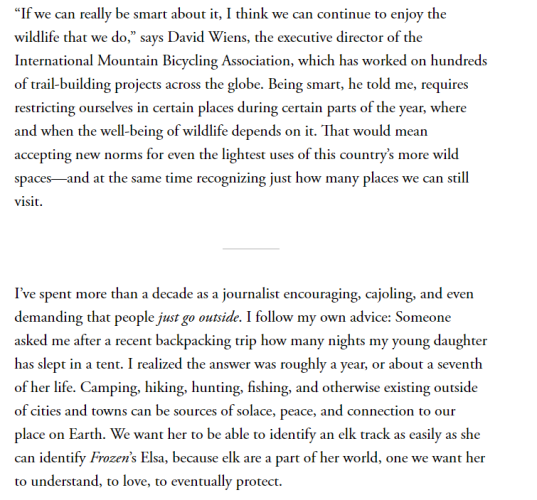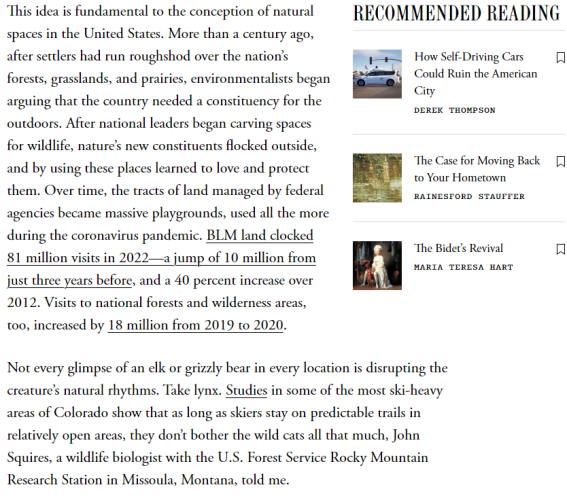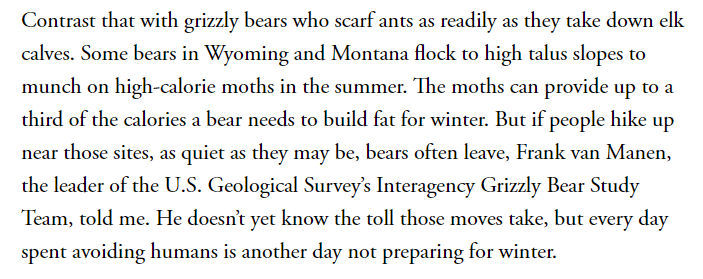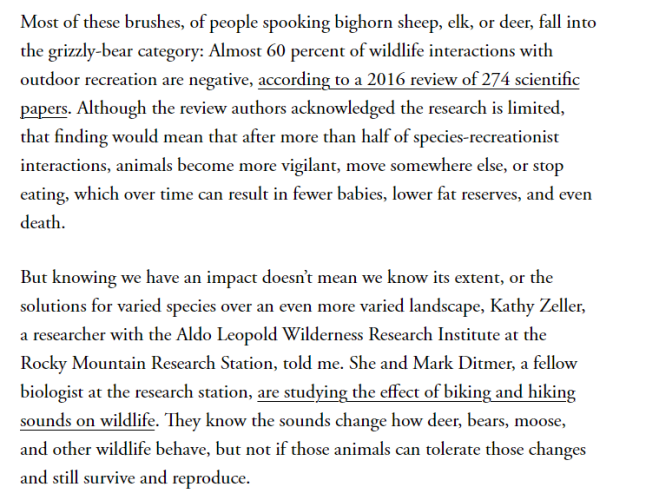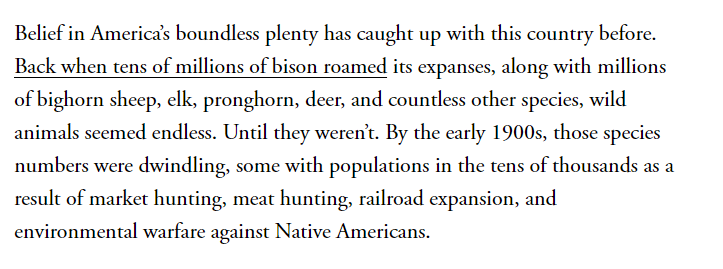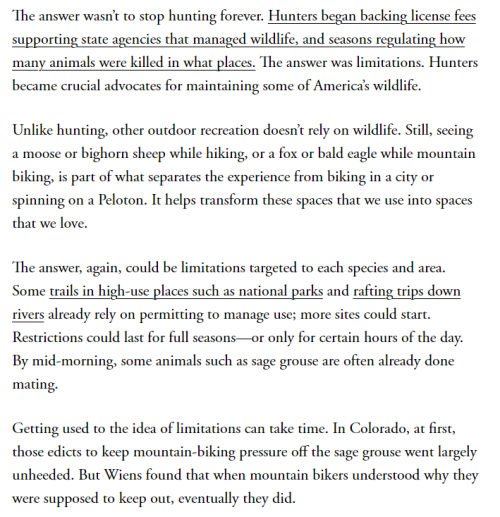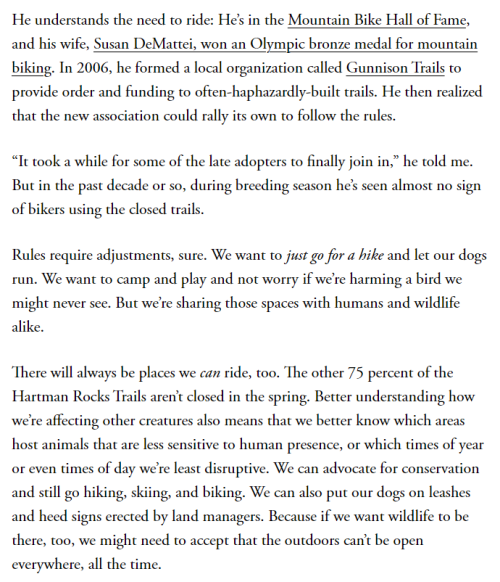Irrelevant
Well-known member
Great article by an author we all know and love. I wish it was front page in every major publication on the planet.

 www.theatlantic.com
www.theatlantic.com

Hiking Needs New Rules
We need to restrict outdoor recreation to certain places during certain parts of the year for the well-being of wildlife.




